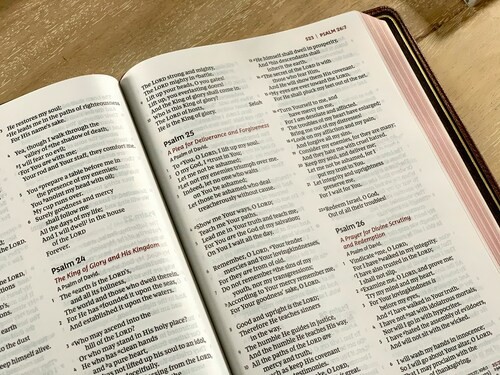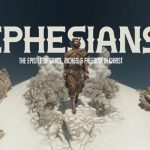Over the past two years, my young children and I have been on a quest to read the entire Bible. Each morning, we snuggle together and progress a little, verse by verse, chapter by chapter, book by book, and we do not skip anything.
As you may imagine, this has been no small feat. This method of study has forced my youngsters and me to extend beyond the Sunday school G-rated stories and examine the whole counsel of the Scriptures, including the upright ordinances and genealogies of Leviticus, Numbers, and Deuteronomy, the explicit contents of Judges, Samuel, and the Kings, the struggles of Job, and much more.
I will not lie. Though the endeavor has been quite wonderful, the amount of effort has been much more than this dad ever anticipated.
When we arrived at last to the book of Psalms, in my heart I sighed in relief. “Whew! Just songs. Nice songs about the greatness and majesty of God. I can relax.”
That is until I had to explain to my kids why the psalmists declared God would smash people, shatter their teeth out, and break their arms.
I have also had to articulate why David cried so intensely and felt that God ignored his pleas.
A Time to Be Honest
As with the rest of the Bible, if you delve into the book of Psalms, without cherry-picking the feel-good parts, you will find that they are bursting with challenging truths expressed through the desperate cries of real people in need of their Savior.
The book of Psalms, which is the inspired worship handbook of God, is brutally honest. This book contains fierce verses that voice not only joys but sorrows and frustrations. Included are the pleas of people desiring the righteous retribution of God on their enemies, the venting of those overwhelmed by deep emotional depression, and even the accusations of humans frustrated that the just Lord did not seem fair.
Surprisingly the worship songs that God set apart as our ultimate model in praising Him often appear intense and difficult to absorb. Why? Simply because God decided to use emotional and struggling people, no different than you and me, to compose them.
For example, consider the forty-fourth Psalm. In the first eight verses, David commends the faithfulness of God in the past, but later has the audacity to claim that God caused enemies to murder them without good reason!
Many students of the Bible will recognize that much of this passage can be understood through a prophetic lens fulfilled in the New Testament. Yet in the time this passage was composed, David was clearly grappling with the reality that the ways of God were not his own. His prayerful song was therefore unfiltered and honest.
To put the text into our own words and context, imagine hearing a modern praise chorus with lyrics equivalent to the heart of this passage. Something like:
And I don’t know why.
Wake up and do something!
They mock me, You crush me.
You say that You love us.
Rise up and help us!”
I will be honest: if I encountered these lyrics in a worship tune or hymn, I might be quick to condemn them as inappropriate. They seem out of step with typical God honoring praises in our day, since they have declarations that, at face value, appear to fault God.
But our Lord, in His mercy, not only allowed words like these to be uttered, but went as far as knitting them into our handbook of worship as an example for us. Why would He permit this?
Worship is Our Sanctuary
The grace of God is so abundant that He allows us during times of worship to be wholly and completely forthright before Him.
God gave us worship as a time of sanctuary.
When we worship, we can approach His throne boldly and say what needs to be said. “God, this is how I feel, this is what I think, and this is what I need from you.” This is similar to a teenager who comes before a gracious parent and blurts out all of their motions without fear of consequence, knowing his mom or dad sees his heart. That is how God receives His children in worship.
Now of course we should by no means be belligerent or in any way disrespectful to our holy Father. However, if the psalms are any indication of the heart of our Lord toward us, then during worship, He imparts to us a tremendous measure of grace.
The Takeaway
What ought we to take away from these truths? Simply this; part of worship is the permission to be brutally honest with the Lord. Talk to Him about your needs. Be vulnerable. This is necessary for the Holy Spirit to complete His full work in us.






